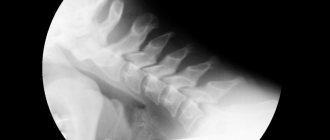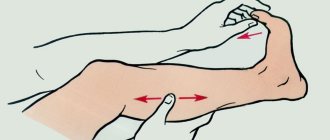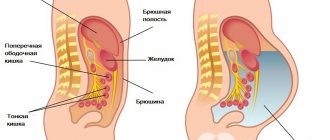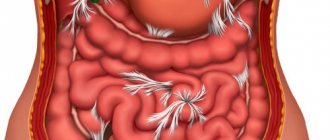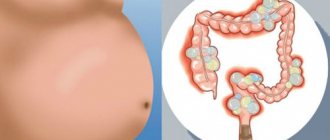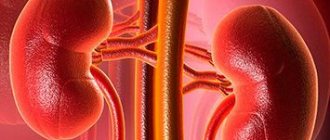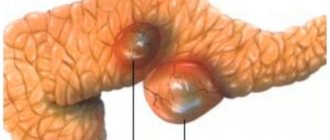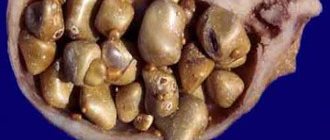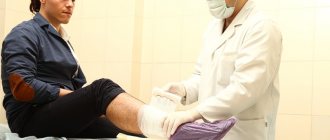What is menopause in women: symptoms, age, treatment of possible problems
Menopause (menopause) is a period of gradual decline in the body's reproductive function, which is caused by a decrease in the production of sex hormones. At this stage, menstrual flow (months) becomes irregular, scanty and eventually stops. This occurs due to a decrease in the production of estrogen and progesterone, depletion of the follicular reserve of the ovaries during menopause, and their atrophy, which leads to a decrease in their weight and size by almost half.
Signs of menopause (Climax), as well as the time of their first appearance, vary and are individual for each woman.
Some may complain of hot flashes, headaches, unstable blood pressure, while others may practically not notice changes in their own body, except for the cessation of menstruation, that is, this period passes without symptoms. If the symptoms of the onset of menopause cause a deterioration in a woman’s quality of life, then appropriate therapy is prescribed, which will be discussed below.
Do exercises at home
It must be remembered that physical activity is required while taking calcium, otherwise the kidneys will suffer, in which the crystals will settle. Physical therapy, consisting of specially designed exercises, helps maintain the tone of the pelvic tissues for a long time, serves as a prevention of genital prolapse, and improves the general well-being of the patient. Gymnastics to prevent genital prolapse (see symptoms of uterine prolapse)
- Walking on toes with retraction of the anus.
- Walk with an object clamped between your legs.
- Lying on your back, alternately raise your straight legs.
- Same position, raise the pelvis above the floor while retracting the anus.
- While sitting, bend your knees and bend your legs.
Yoga classes are effective, as well as “Bodyflex” gymnastics, which allows you to eliminate organ prolapse if initial signs are already noted, strengthens the muscles of the pelvis and abdominal wall, improves blood circulation, and increases overall tone.
When do the first signs of menopause appear: the age of women
The time of onset of this period is individual for each woman and depends on a number of factors (heredity, general health, number of births in history). On average, the age at which the first symptoms of menopause appear is 50 years, but in some cases, the onset of menopause can be observed at both 40 and 60 years. The greatest intensity of menopause symptoms usually persists for a year, after which it gradually decreases and ends.
Separately, it is worth noting early menopause. Symptoms of this condition can begin as early as 28-30 years of age. If the first signs of menopause occur so early, there is a risk of developing cardiovascular diseases and osteoporosis at a young age.
Expert opinion
The onset of early menopause quite often coincides with a woman’s period of social and sexual activity. Therefore, reducing the intensity of menopause symptoms is important not only from a medical but also from a social point of view.
Obstetrician-gynecologist of the highest category Oksana Anatolyevna Gartleb
Elimination of unpleasant symptoms
Manifestations of menopause affect various organ systems. Symptomatic treatment helps to correct certain unpleasant manifestations and protects a woman from chronic diseases that may manifest themselves for the first time or have already been diagnosed. The table below presents the main groups of drugs for symptomatic treatment.
| Symptoms | Drug groups | Names of funds |
| Increased blood pressure, tachycardia | Antihypertensive drugs | Metoprolol, Bisoprolol |
| Dizziness, lack of concentration, memory impairment | Means for improving brain metabolism, antioxidants, vascular drugs | Vinpocetine, Vazonit, Mexidol |
| Pain in muscles, joints, abdomen, mammary glands | Painkillers | Nurofen, Ketonal |
| Muscle cramps, emotional lability, vascular reactions | B vitamins, magnesium preparations | Magne B6, Neuromultivit, Magnerot |
| Anginal heart pain | Preparations from the nitrate group | Cardiket |
The first symptoms of menopause in women aged 40-50: how does menopause begin?
Among the main signs of menopause after 40, which appear first, are the following:
- Hot flashes, sweating. Hot flashes are the first signs of menopause, which 75-85% of women experience. Hormonal changes in the body during menopause affect thermoregulation processes. As a result of changes in hormonal levels during menopause, a woman may suddenly experience bouts of fever, which usually last several minutes and go away on their own. The mechanism of their occurrence is associated with the effect of estrogens on the hypothalamus, which contains the thermoregulation center that controls the processes of retaining heat by the body. When the amount of estrogen decreases during menopause, signals are sent to the hypothalamus that the body is overheating, which results in increased sweating and dilation of peripheral blood vessels. At such moments, the woman’s face and neck turn red, beads of sweat appear on the skin, the heartbeat quickens, dizziness, nausea and weakness may be present. At the end of the attack, profuse cold sweat may appear, accompanied by trembling.
- Heart rhythm disturbances during menopause. Tachycardia during menopause is caused by a decrease in estrogen levels, which normally affects the maintenance of normal functioning of the cardiovascular system.
- Dizziness, headache. These symptoms of incipient menopause can be caused by high/low blood pressure, as well as its sudden changes.
- Forgetfulness. Changes in hormonal levels lead to a decrease in vascular tone and affect cerebral circulation, which is why women during menopause complain of memory problems.
- Unstable emotional background during menopause. A decrease in the level of estrogen and endorphins leads to tearfulness, irritability and excessive sentimentality.
- Lack of thyroid hormones (hypothyroidism). Symptoms of hypothyroidism in menopausal women include apathy, difficulty concentrating, and hair loss.
- Vaginal dryness, itching and burning in the vagina during menopause. Due to a decrease in estrogen levels, there is a decrease in the production of natural vaginal lubrication, the intensity of blood flow in the vessels of the vaginal walls decreases, and thinning of the mucosa occurs. All this leads to dryness and itching; intimacy during menopause causes painful sensations.
- Osteoporosis. Osteoporosis is one of the dangerous symptoms of menopause that can lead to bone fractures. The reason for the decrease in bone density is the gradual leaching of calcium from the body, as well as a disruption in the absorption of phosphorus and vitamin D, a lack of silicon, boron, fluorine, magnesium and manganese.
- Gaining excess weight. Weight changes are explained by a decrease in the rate of metabolic processes, an attempt to compensate adipose tissue for extragonadal synthesis of sex hormones, which is one of the characteristic symptoms of female menopause.
- Decreased skin tone. One of the functions of estrogens is to maintain the elasticity of the skin. As the production of these hormones decreases, skin tone deteriorates, resulting in wrinkles, dryness, and flaking during menopause.
- The occurrence of mastopathy and chest pain due to ongoing hormonal changes.
Nutrition and diet
Spicy foods, caffeine and alcohol should be avoided. A low-fat, low-cholesterol diet helps reduce the risk of heart disease and also combat the development of metabolic syndrome, one of the main dangers facing a woman during this vulnerable period of her life.
To prevent osteoporosis, it is important to consume enough calcium and do some strength training. The effort with which a woman bears her own weight is enough, so walking, gardening, and playing tennis are useful. These methods will help strengthen your bones.
How to lose weight during menopause? The recipe is simple - reduce your caloric intake and increase physical activity. This should be done at the first symptoms of menopause in order to maintain normal weight. Eating frequently in small portions while maintaining the same calorie intake will not help in the fight against excess weight.
Problematic features of menopause in women: symptoms and treatment
In some cases, the manifestations of menopause cause a woman such a severe deterioration in her quality of life that she has to seek medical help to reduce them. Below you will find general information regarding the treatment of menopausal symptoms, but remember that treatment should be prescribed by a specialist.
Self-medication can lead to new health problems and worsening symptoms of menopause.
Treatment of hot flashes during menopause
For frequent and intense hot flashes that cause physical and emotional discomfort to a woman, menopausal hormone therapy (MHT) medications may be prescribed. They contain analogues of sex hormones - both plant and synthetic origin. More often it is a combined drug based on estrogen and progesterone, which has a protective effect on the uterus (endometrium) and mammary glands.
To achieve the best results, it is advisable to start taking hormone replacement drugs at the very beginning of menopause, when its first symptoms appear. The dosage and regimen should be drawn up by a doctor, taking into account the woman’s general health, medical history, age, TSH, FSH levels.
Despite the fact that menopausal hormone therapy can reduce the unpleasant symptoms of menopause, in some cases its prescription is impossible. We are talking about absolute contraindications to taking MHT - such as heart attack (Infarctus) and/or stroke (Insultus), deep vein thrombosis, renal or liver failure, hormone-dependent oncological diseases, autoimmune diseases.
Preparations based on phytoestrogens, for example, Climafemin Ginocomfort, act as an effective alternative to MHT. This is a dietary supplement that contains the phytoestrogen genistein, an organic substance that helps reduce hot flashes and sweating, normalizes metabolism and hormonal levels, and improves sleep quality. In addition to genistein, the product contains active ingredients such as vitamin E, coenzyme Q10 and grape seed extract. All of them have a beneficial effect on a woman’s body, helping to preserve youth and normal well-being.
Treatment of hypertension during menopause
If the symptoms of menopause are accompanied by increased blood pressure, treatment may also include taking antihypertensive drugs (diuretics and diuretics).
Normalization of psycho-emotional state
If during menopause a woman experiences serious emotional instability, even to the point of developing depressive states, she may be recommended sedatives, and in especially severe cases, antidepressants.
Therapy for osteoporosis during menopause
To combat such a symptom of menopause in women as osteoporosis, they are prescribed to take bisphosphonates, calcitonin, strontium preparations, fluoride salts, vitamin-mineral complexes and food supplements containing boron, calcium, vitamins K1 and D. During menopause, it is recommended to include foods in the diet foods rich in calcium and vitamin D (milk, hard cheese, poppy and sesame seeds, soy, nuts, fresh herbs, fish; beef and pork liver, egg yolks, fish oil, cod and halibut liver, butter).
To reduce the manifestations of osteoporosis during menopause, it is necessary to stop smoking, since tobacco helps remove calcium from the body.
Combating vaginal dryness during menopause
To solve the problem of vaginal dryness caused by the onset of menopause, you can use special intimate gels. For example, you can use the Gynocomfort moisturizing gel, which provides relief from natural vaginal secretions and eliminates itching, dryness, burning and irritation in the vagina.
This product was tested during clinical studies conducted at the Department of Dermatovenereology with the clinic of St. Petersburg State Medical University, under the leadership of Ignatovsky A.V. and Sokolovsky E.V. Clinical studies have shown that due to the components included in the gel, the use of the product helps to achieve good hydration.
Neurologist Dmitry Shubin and the appearance of menopause. Live healthy!
The mucus-like consistency of mallow extract, which is part of the product, envelops and moisturizes the mucous membrane of the vulva, has a mild soothing and anti-inflammatory effect on it. Chamomile extract has a beneficial effect on existing microcracks, promoting their speedy regeneration. Panthenol and bisabolol eliminate irritation and have antibacterial properties. Moisturizing gel "Ginocomfort" was developed by specialists from a pharmaceutical company and has the necessary certificates of conformity.
Also, during menopause, a gynecologist may recommend the use of vaginal suppositories containing herbal or synthetic analogues of sex hormones. Some folk remedies for treating crisis symptoms can also be extremely effective. But it is better to coordinate everything with your doctor.
The use of such products helps to normalize the thickness of the mucous membrane during its atrophy, enhance the formation of vaginal secretions, and maintain an optimal level of acidity.
Medicines
Hormone replacement drugs include:
- "Atarax";
- "Dermestril";
- "Grandaxin";
- gels – “Estrogel”, “Divigel” (apply to the lower abdomen);
- tablets, injections - “Estradiol” 1-2 mg/day (especially for women with a removed uterus);
- injections – “Dydrogesterone” 10 mg 2 times a day. (to prevent bleeding from fibroids or endometriosis during menopause);
- tablets – “Progesterone” micronized 100 mg 3 times a day. and other options prescribed by a specialist.
A severe form of menopause (menopausal syndrome) requires mandatory complex therapy, the leading element of which is hormone replacement therapy. Hormonal drugs are prescribed only after a detailed examination to establish the extent of existing disorders and exclude the presence of contraindications.
Hormone replacement treatment for menopause must strictly comply with several principles:
- Only natural estrogens and gestagens are used;
- doses of hormones should be minimal but sufficient;
- The duration of therapy is limited to two years; if the pathological symptoms recur, treatment is resumed again.
Non-hormonal medications include:
- "Qi-Klim";
- "Estrovel";
- "Bonisan";
- "Klimadinon"
- "Femoston";
- "Remens";
- "Tibolon".
When menopause occurs in women after 50 years, it can pass more calmly. But if there are any disruptions that interfere with the quality of life, then it is not necessary to immediately resort to hormones.
You can first try medications that are based on plant estrogens (phytohormones). It is believed that these are more gentle means than synthetic hormonal drugs. But taking these medications has one feature - the effect is lower and appears later, but the safety for the entire body as a whole is higher than that of non-plant hormones.
Effective antidepressants (sedatives), tranquilizers and antipsychotics:
- "Bellatamil";
- "Belloid";
- "Grandaxin";
- Novo-Passit";
- "Frenolone";
- "Etaperazine."
Cardiac and hypertensive drugs may be as follows:
- "Verapamil", "Bellaspon" - for tachycardia (prescribed only after taking sedatives);
- "Bellaspon", "Eufillin", "Alupent" - for bradycardia;
- "Cordaron";
- “Disopyramide”, Quinidine”, “Novocainamide” - bringing Czechoslovakia back to normal;
- Digoxin - to reduce heart rate;
- anti-blockers - “Alupent”, “Isadrin”, “Atropine”.
How to reduce symptoms and signs of menopause in women: useful tips
With the onset of menopause, it is recommended to adhere to the following recommendations:
- Move more, engage in feasible sports and physical exercise.
- Master breathing and relaxation techniques
- Eat right and stay hydrated.
- Exercise your brain (read, solve crosswords, learn foreign languages).
- Perform exercises that train fine motor skills.
Remember: a correct lifestyle and timely consultation with a doctor if necessary will allow you to reduce unpleasant symptoms during menopause!
Sources:
- SOFT CLIMAX. Zhexembinova R. S. // Bulletin of surgery of Kazakhstan. – 2011. – No. 4. – P.98.
- MODEL OF SPECIALIZED CARE FOR WOMEN WITH Climacteric Disorders. Kholodova L.N., Protopopova N.V., Kravchuk L.A., Sharifulin M.A. // Siberian Medical Journal (Irkutsk). – 2004. – P. 76-77.
- Guide to outpatient care in obstetrics and gynecology / ed. V. E. Radzinsky. — 2nd ed., revised. and additional - M.: GEOTAR-Media, 2014. - 944 p.
- Gynecology: textbook. for universities / ed. G.M. Savelyeva, V.G. Breusenko. — 4th ed., revised. and additional - M.: GEOTAR-Media, 2012. - 432 p. : ill.
- https://www.medicinenet.com/menopause/article.htm
- Menopausal syndrome. EAT. Vikhlyaeva // Guide to endocrine gynecology. - M.: MIA. - 1998. - P. 603-650.
- Therapy of depressive disorders in general medical practice. Dubnitskaya, E.B. A.V. Andryushchenko // Modern psychiatry. – 1998. – No. 2. – pp. 10-14.
- Menopause and perimenopausal period. R.B. Jaffe // Reproductive endocrinology. Edited by S.S.K. Yen, R.B. Jaffe. – M.: Medicine. - 1998. - T.2. – pp. 560-586.
- https://www.menopause.org/for-women/menopauseflashes/menopause-symptoms-and-treatments/are-we-there-…
- https://www.healthline.com/health/menopause/symptoms-signs
- https://nccih.nih.gov/health/menopause/menopausesymptoms
When to see a doctor immediately
There are situations when a woman during menopause should undergo examination.
Gynecologists advise not to delay visiting a doctor in the following cases:
- Symptoms of menopause appear before the age of 45 for no apparent reason. The examination will allow you to identify hormonal imbalances in time and correct them.
- Menopause occurs with severe dizziness. It is necessary to examine the vascular system, exclude vertebrobasilar insufficiency, and also undergo examination by an otolaryngologist for differential diagnosis with Meniere's disease.
- A woman notices increased hair growth on her face and chest. Hirsutism can be a sign of menopause. Then, against the background of a decrease in estrogen concentration, the sensitivity of hair follicles to androgens increases. But this symptom also signals the development of a hormone-dependent tumor.
- Itching in the genital area, discomfort and feeling of dryness during sexual intercourse, frequent occurrence of inflammatory diseases. The gynecologist will conduct an examination to rule out infections. If atrophic changes in the vulva develop, the doctor will suggest the use of lubricants.
- Incontinence and frequent urination are signs of estrogen deficiency. You should consult a urologist with this delicate problem.
- The appearance of a mass formation in the mammary gland, bleeding from the genital tract after the cessation of menstruation. These signs may indicate the presence of tumors of the uterus and breast.
- Pain, shortness of breath, tachycardia, tingling in the heart. Contacting a cardiologist will allow you to distinguish functional changes from developing myocardial dystrophy or new-onset coronary disease.
- Frequent hot flashes with pronounced palpitations and sweating. You should consult a gynecologist and select a herbal or synthetic drug to correct the condition.
- Disturbances in the psycho-emotional sphere that make life difficult. You should not hesitate to see a doctor if you have severe irritability, tearfulness, anxiety with somatic manifestations, if due to these and other experiences your relationships with loved ones suffer and your performance deteriorates.
Popular questions
Hello, hot flashes have begun, mood changes have begun, (menopause) the uterus has been removed due to mime.
What can you take in combination with vitamins to reduce this condition? You can start taking Ginocomfort climafemin 1t once a day for 3 months to relieve vegetative storms.
Hello, burning sensation in the vagina, menopause, the doctor prescribed Levomekol ointment, what else can I use?
Hello! In your case, you can use Ginocomfort gel with mallow extract, 1 dose 1 time per day for 10 days, and then 2 times a week for a long time. This product contains herbal components, bisabolol and panthenol, which will moisturize and restore the mucous membranes of the genital tract. In the absence of contraindications, it is possible to use estriol-containing drugs, for example Ornion cream, which will be etiotropic therapy.
Hello! Surgical menopause, breast cancer in 2011. I suffer from vaginal dryness, periodic cystitis and constant vaginitis after each sexual intercourse. What prevention methods are possible? After every contact?
During menopause, you can use products that do not contain hormonal components. In the Gynocomfort line, this requirement is met by a gel with mallow extract. This will help not only moisturize the mucous membranes, but also restore elasticity and aid in regeneration. The gel can be used both before contact and as needed without a time limit.
Hello, I’m 47 years old, menopause has been going on for 5 years now, at 42 it ended and that’s it, at first I didn’t take anything, the condition worsened, hot flashes and mood swings, poor sleep. 3 years ago, on the doctor’s recommendation, I took Femoston 1/5 for a year. I took it for 1 year, felt good, stopped taking it, after all, it’s hormones, now I feel bad again. hot flashes, increased blood pressure, palpitations, poor sleep, hot flashes mainly at night and depression, tell me Ginocomfort Klimafemin could help me or should I take Femoston again?
Hello!
At this stage, you can start by taking Gynocomfort climafemin. This will improve your well-being and you will have time to conduct additional examinations before resuming menopausal hormone therapy, if necessary: pelvic ultrasound, mammography, lipid spectrum, general blood test, TSH level, consultation with a therapist and obstetrician-gynecologist, smears for flora and oncocytology. For an accurate diagnosis, contact a specialist
Diagnostics
For a gynecologist, diagnosing menopause is not particularly difficult. The signs of menopausal syndrome are so specific that only by their presence can a doctor diagnose the onset of decline in reproductive function. But this is not enough to prescribe treatment.
Since hormone levels can fluctuate over a wide range, accurate determination is required, since this determines the nature of the recommended drugs and dosage. Therefore, all women are required to undergo a series of laboratory tests to determine the level of:
- estradiol;
- follicle-stimulating hormone (FSH);
- luteinizing hormone (LH);
- male sex hormones;
- inhibin.
The ratio of hormones to each other also plays an important role.
In addition to blood tests, patients are recommended to undergo other examinations so that the gynecologist can get a complete picture of the condition and quality of functioning of the internal genital organs, namely:
- Ultrasound of the pelvic organs - the number of follicles in the ovaries and the condition of the fallopian tubes and uterine body are determined;
- cytological analysis of a smear from the mucous membrane of the cervix - the structure of the cells is determined;
- osteodensitometry - carried out to assess bone density, which is required to determine osteoporosis;
- ECG – is prescribed to diagnose heart diseases.
In our clinic, you can also learn in more detail about the composition of your body and the state of the vascular system, which is involved in the blood supply to internal organs, skeletal muscles, and the brain. Our experienced doctors will explain the data obtained to you in detail. Bioimpendansometry calculates the ratio of fat, muscle, bone and skeletal mass, total fluid in the body, and basal metabolic rate. The intensity of recommended physical activity depends on the state of muscle mass. Metabolic processes, in turn, affect the body's ability to recover. Based on the indicators of active cell mass, one can judge the level of physical activity and nutritional balance. This simple and quick test helps us identify disturbances in the endocrine system and take the necessary measures. In addition, it is also very important for us to know the condition of blood vessels for the prevention of diseases such as heart attacks, hypertension, heart failure, diabetes and much more. Angioscan allows you to determine such important indicators as the biological age of blood vessels, their stiffness, stress index (which indicates heart rate), and blood oxygen saturation. Such screening will be useful for men and women over 30, athletes, those undergoing long-term and severe treatment, as well as everyone who monitors their health.
How to help yourself
The standard method of combating the manifestations of menopause is hormonal replacement therapy. It must be remembered that drugs should be prescribed only by the attending physician. Experts try to select optimal doses: so large as to ensure normal functioning of all organs and systems, and so small as not to provoke disruption of the endocrine system.
How to ease menopause? At first, you can do without using strong drugs. Doctors recommend that women first adjust their diet. Once you reduce your consumption of spices, caffeine, sweets and alcohol, your condition will begin to improve. It is important to eat a lot of fruits and vegetables, dairy products, and introduce natural vegetable oils that contain vitamin E into your diet.
Herbal medicine also helps, but it is recommended under the supervision of a doctor. Herbs will become female helpers:
- Red crow, which is sold in capsule or tablet form. It reduces hot flashes and relieves muscle spasms.
- The usual dandelion will be an excellent helper. A tincture of its leaves and roots helps normalize hormonal levels.
- Angelica plant is able to neutralize the symptoms that appear as a result of a drop in the level of the hormone estrogen.
Change in psychological state
The onset of menopause is accompanied by a decrease in mood. Even the calmest woman notices inexplicable nervousness, irritability and headaches. Other symptoms are individual.
Some may complain of heart palpitations. Others suffer from attacks of suffocation, weakness and chills. The majority note increased and previously unusual sleepiness during the day and insomnia at night, anxiety, a feeling of fear, a depressed and even depressive state. This does not mean that life is over and it will only get worse. You just need to undergo a full diagnosis, after which, in the absence of somatic diseases, the doctor will prescribe mild sedatives.
Difficult relationships with household members
The age of 45 is considered one of the most difficult in a person’s life. Not only the first youth, but also youth are irrevocably gone, children begin to build their adult relationships, even if they still live in the family. All those rough edges in the relationship with the husband, which until now were hidden under the hustle and bustle of everyday life, acutely emerge, because the spouses spent more time taking care of the children.
As a result, absolutely everything begins to irritate. In fact, these are the first signs of menopause. Soon life will take another turn and give a woman new meaning. Psychological stress from one’s own aging is aggravated by the fact that it is at this time that problems arise with growing children and parents, whose age and health leave much to be desired.
An important role is also played by public opinion, according to which menopause is the end of femininity and attractiveness, that is, practically old age. This is a big mistake, since the first signs of menopause do not mean the end of life, it is just a new stage. The main thing is not to get used to the role of a depressed patient, otherwise there is a chance of losing your family. For there will be enough contenders for someone’s fragile happiness.
